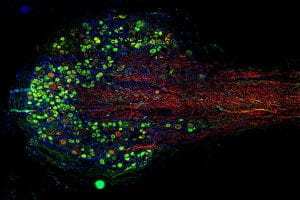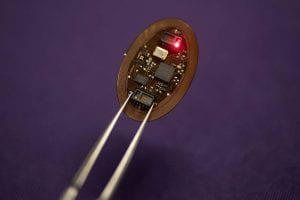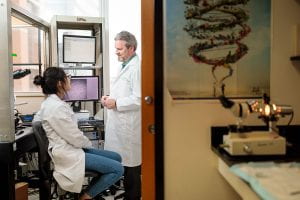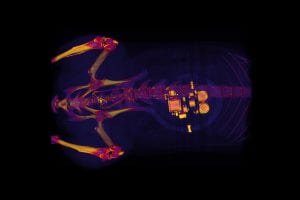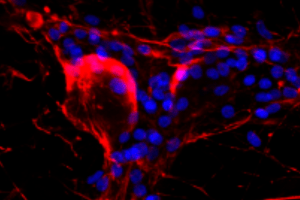Society of General Physiologists honors Dr. Del Rosario with Excelsior Award
John Del Rosario, PhD, was recently honored by the Society of General Physiologists with the prestigious Excelsior Award, recognizing his exceptional contributions to the fields of physiology and biophysics.
Understanding, treating pain, reducing opioid use, aim of $11.7 million grant (Links to an external site)
Researchers at Washington University School of Medicine in St. Louis have received a five-year, $11.7 million grant to study human genes and nerve cells to better understand how cells transmit pain and to identify new ways to treat it.
Saving a Life When No One Is Around (Links to an external site)
Robert Gereau, Ph.D., of Washington University in St. Louis, Missouri, and John Rogers, Ph.D., of Northwestern University in Evanston, Illinois, are developing a miniaturized overdose-detection device. Implanted under the skin, the device would detect an overdose, automatically administer naloxone, and alert emergency responders and other members of the individual’s support system.
Mentoring and Inclusion Are Top Priority for 50 New Gilliam Fellows and Their Advisers (Links to an external site)
Bobbie Brown selected as 2021 HHMI Gilliam Fellow.
Gereau honored for mentorship and training in neuroscience research (Links to an external site)
Robert W. Gereau IV, PhD, the Dr. Seymour and Rose T. Brown Professor and vice chair for research in the Department of Anesthesiology, has received the Landis Award for Outstanding Mentorship from the National Institute of Neurological Disorders and Stroke (NINDS) of the National Institutes of Health (NIH).
Gereau & Rogers to Develop Devices to Combat Opioid Overdose (Links to an external site)
Researchers have developed an implant that could revolutionize opioid overdose treatment. The implant, placed under the skin, automatically releases naloxone—a drug that counters opioid overdoses—when low oxygen levels are detected in the blood, a common overdose sign. This innovation offers a potential solution to the opioid crisis by providing swift naloxone delivery without immediate human intervention.
Washington People: Robert Gereau (Links to an external site)
Scientist working to identify, reverse causes of chronic pain.
Tiny, implantable device uses light to treat bladder problems (Links to an external site)
Device that works in rats has potential to replace electronic stimulators, drugs for pain, incontinenc.
AAAS names 11 Washington University faculty as fellows (Links to an external site)
Gereau Elected Fellow of the AAAS for his contributions to research on determining the cellular and molecular changes that underlie the development of chronic pain conditions.
2017 Frederick W.L. Kerr Basic Science Research Award (Links to an external site)
Robert W. Gereau receives the Frederick W. L. Kerr award from the American Pain Society.
Light-controlled genes and neurons poised for clinical trials (Links to an external site)
Nature news article interviews with Dr. Gereau describing future clinical trials using optogenetics for pain relief.
Revolutionary Neuroscience Technique Slated for Human Clinical Trials (Links to an external site)
Scientific American interviews Gereau on the future implementation of optogenetics in clinical trials for pain relief.
Human Nociceptor research featured on the Pain Research Forum (Links to an external site)
In the wake of failed clinical trials based on animal models, the pain field is facing what seems to be an inescapable conclusion: the success of new pain drugs in the clinic will likely require studies of human cells and tissues.
ERK2 Alone Drives Inflammatory Pain But Cooperates with ERK1 in Sensory Neuron Survival (Links to an external site)
Pain Research Forum story on O’Brien et al study on the role of ERK2 in pain and nociceptor development.
Light — not pain-killing drugs — used to activate brain’s opioid receptors (Links to an external site)
New research at Washington University in St. Louis shows that it’s possible to activate opioid receptors with light instead of pain-killing drugs. The discovery eventually may lead to new ways to relieve severe pain without the addictive properties and side effects posed by opiate drugs, such as morphine, OxyContin and Vicodin.

